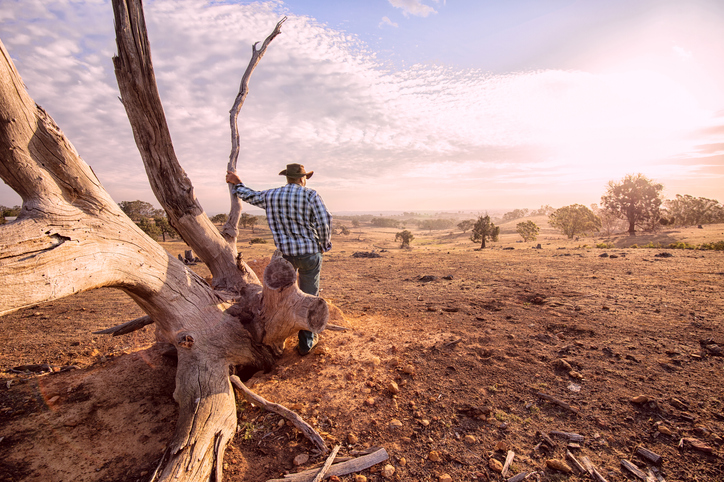
El Nino conditions brewing in the Pacific Ocean could exacerbate the return of extremely hot temperatures in regional Australia, but Flinders University experts have developed a drought resilience toolkit with strategies that can assist regional communities and farmers ahead of time.
The Drought Resilience Mapping and Assessment Toolkit (DRMT) provides a practical, low-cost resource to assist in identifying strategies that best support farmers, townships, communities, and businesses with future drought resilience planning.
The results have shown that drought resilience is underpinned by the strength of the entire community network. Key to community wellbeing was found to be strong social networks and informal community based groups – the value of which is often unobserved in drought resilience assessments.
Developed by Professor Roberta Crouch, Professor Paul Arbon and their team at the Torrens Resilience Initiative (TRI) and the College of Business Government and Law at Flinders University, the DRMT was co-created with communities in Crystal Brook, Orroroo, and Loxton through a series of interviews and community focus groups and an assessment of community assets, in addition to an economic report for each community that supported the key economic indicators of the DRMT.
The prototype was then tested with community leaders to confirm its capability to adapt to local conditions by mapping, assessing, and evaluating existing family, community, and business networks and resources that can be leveraged to help protect the community during severe droughts.
The toolkit received wide support from representatives of the participating communities, and the Flinders team is now working with these communities to develop its wider implementation in the future.

Currently, Professor Roberta Crouch and the Flinders team are conducting independent research for the District Council of Loxton Waikerie that will enable the DRMT to be employed in their upcoming strategic planning period commencing in August 2023.
“The DRMT is transformational in assessing the ability of existing human systems to survive and recover from drought events; integrative – developing strategies that allow integration of human systems that can adapt and recover from widespread adverse events; and structural – addressing communities’ ability to absorb adversity and rebound quickly, thus strengthening resilience,” says Roberta Crouch, Professor of Business Management in the College of Business, Government and Law.
“The data indicated that high levels of economic and social capital, well-regarded community assets, and high levels of entrepreneurship enhanced drought resilience, and that the effects of drought go beyond farm viability to wider economic and societal viability, with loss of community and business diversity, threats to intergenerational succession, poor mental health, and reduced entrepreneurship all at stake.”
“However, the best data and research in the world is of no value in reality if the outcomes of projects such as this aren’t employed to provide benefits to the communities we’re trying to help. The best thing about this project is that it has resulted in a practical, easy to understand and use, tool that councils and other stakeholders and leaders can use right now – but we hope to be able to develop the project further to incorporate the ability to measure community resilience to all hazards, not just drought”
Director of the Torrens Resilience Initiative, Professor Paul Arbon, says the community program has shown that drought resilience is underpinned by the resilience of the entire community and that no single entity can be as effective at dealing with periods of prolonged drought.
He also makes the point that “drought is a long term (slow burn) and community wide challenge, less noticeable than the more dramatic events such as wildfires that accompany periods of El Nino, but resulting in serious consequences for rural economies, including farm gate and dependent businesses and services ,and health including mental health. Preparing communities for these climate related challenges is more important than it has ever been”.
District Council of Loxton Waikerie CEO David Beaton says the project was important on a range of issues especially as it engaged outside the typical local government style.
“We look forward to understanding more. The next stages of engagement can be pivotal to tailoring our strategic focus to the needs of the community.”
The project was funded by the Australian Government through the Future Drought Fund (Grant ID: 4-H7WRYCU).

